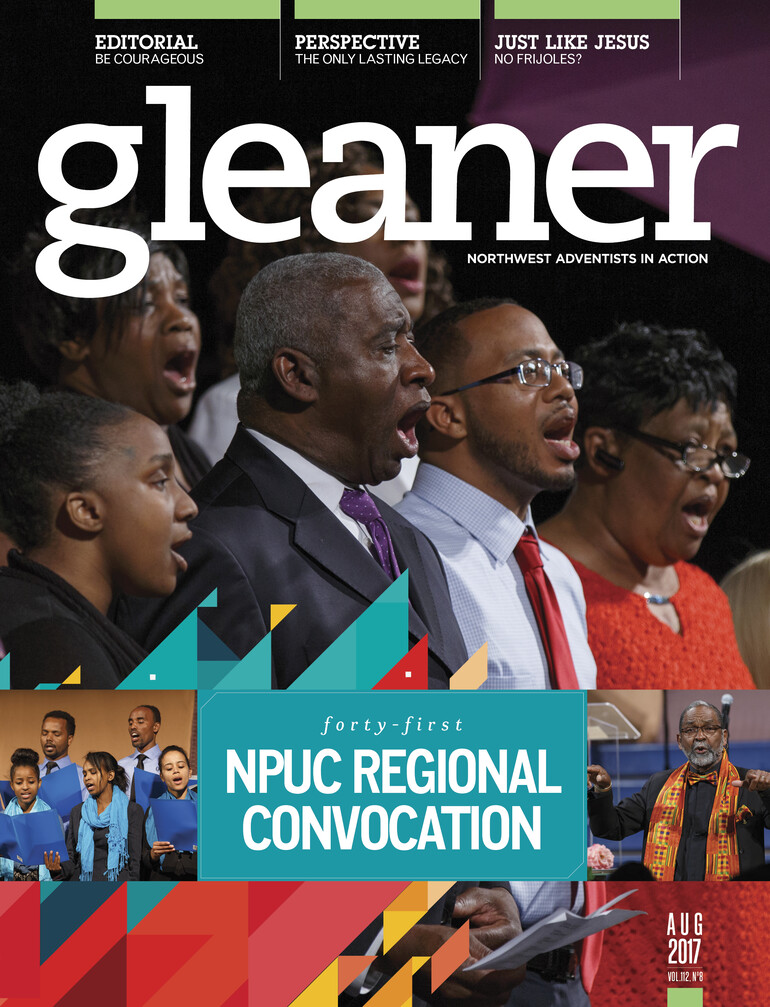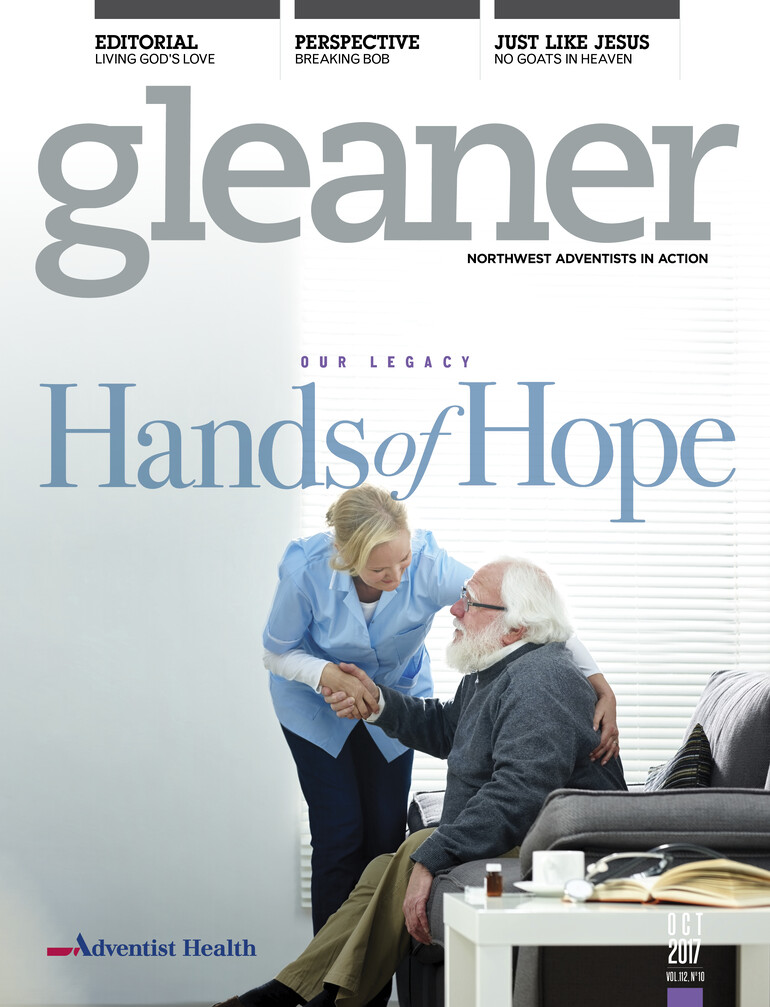Relational or Not?
I have been reading over your August edition and can’t help but share my assessment of two articles. The editorial [“Be Courageous”] by John Freedman shows a pastor’s heart for his church, and his recognition of our need to build relationships is absolutely right on. The Martin Weber "perspective" is a classic example of "how not" to build a relationship. His name calling and labeling (terrorists of the testimonies, the church's jihadists) are divisive at best. … Pastors seem to have forgotten that ALL sheep need shepherding. May I suggest that our leaders should attempt what seems impossible and work towards a blended worship including old sheep and young sheep working together.
Bart Shields, Athol, Idaho
We Appreciate Our Pastors
[In honor of Pastors' Appreciation Month] we are grateful for the dedicated leadership of our pastoral team and their families. We are so blessed that the Lord has guided Seth and Angela Pierce, Michael and Tara Demma, and Natalie Dorland to serve our congregation and the entire community with Holy Spirit-guided passion. Thank you, and may God bless each of you richly!
The members of the Puyallup Church, Puyallup, Wash.
Treating Just the Symptoms?
I read the editorial ["Be Courageous," August 2017] with interest, full well knowing that to address any “crisis” of any kind takes courage and will bring some kind of criticism. I applaud Elder Friedman [sic] for recognizing that a problem exists and calling it a “failing.. No one wants to feel like a failure nor be called one. I agree with his conclusion that it takes courage to face our failings and that in doing so we will make an “eternal difference.”
Ironically, the very illustration he uses about the Uber Company also fits the observations I would like to express. “We have found the enemy, and it is us” fits in more than one way. As Laodiceans we know that we are “wretched, miserable, poor, blind, and naked,” making it difficult to see or diagnose our own problems. I am not a doctor, but I know that rarely is a disease healed by merely treating the symptom. The physician must arrive at the root cause of the disease before an adequate cure can be found or a treatment plan arrived at.
Elder Friedman raises a very legitimate issue, but is his solution, "building relationships,” one that treats only a symptom of Laodicea or does it cure the root cause of our illness? Sister White states an appalling fact numerous times, which I will quote from the book Christian Service, p. 41: “It is a solemn statement that I make to the church, that not one in twenty whose names are registered upon the church books are prepared to close their earthly history, and would be as verily without God and without hope in the world as the common sinner. They are professedly serving God, but they are more earnestly serving mammon. This half-and-half work is a constant denying of Christ, rather than a confessing of Christ. So many have brought into the church their own unsubdued spirit, unrefined; their spiritual taste is perverted by their own immoral, debasing corruptions, symbolizing the world in spirit, in heart, in purpose, confirming themselves in lustful practices, and are full of deception through and through in their professed Christian life. Living as sinners, claiming to be Christians!”
Even though we develop relationships with our youth, which I am in complete harmony with, the fact remains we are in a state of being “wretched, miserable, poor, blind, and naked.” Until we find the cure for that, anything we try to dream up in order to solve the “youth crisis” is only treating a symptom.
Recently I heard a Christian radio talk show host discussing problems he saw within the Christian community. He used terms that I believe really hit the nail on the head. He spoke of “social Christians” and “Biblical Christians.” We have members who seek out and attend the church that best fits their culture, race, language, worship style or pastoral preference. If they don’t find the right fit, they quit coming. Often it’s in one door and out the other. For them it is often only about relationships. But much like a hockey player joining a quilting club or a biker joining a scrapbooking club, they will soon feel like it isn’t a good fit and will quit attending.
Biblical Christians on the other hand are defined in Gal. 2:20: “I have been crucified with Christ: it is no longer I who live, but Christ lives in me; and the life which I how live in the flesh I live by faith in the Son of God, who loved me and gave Himself for me.” For true Christians it isn’t about what I want or what I can get out of my membership in the club (church) but rather how can I serve, what can I do to help?
We aren’t left to wonder how to solve the Laodicean condition! Jesus doesn’t leave us in the dark! Even though we are said to be “blind” we don’t have to stay that way! Jesus says, “Behold, I stand at the door and knock. If anyone hears My voice and opens the door, I will come in to him and dine with him, and he with Me” (Rev. 3:20). The root cause of our problem (singular) is the fact that Jesus does not occupy the thrones of our hearts. He is still on the outside seeking entrance. The church is unconverted! That is why Sister White uses that “not one in 20 “ number. In our current condition we can’t solve anything. We know that the majority of the church rejected the “righteousness by faith” message back in 1888, but what we don’t recognize is that we have only recovered a small part of that message today. We desperately need to focus on what Gal. 2:20 really means. Only then will our eyesight be restored and we will start to see the answers to our issues.
Howard Williams, Payette, Idaho









